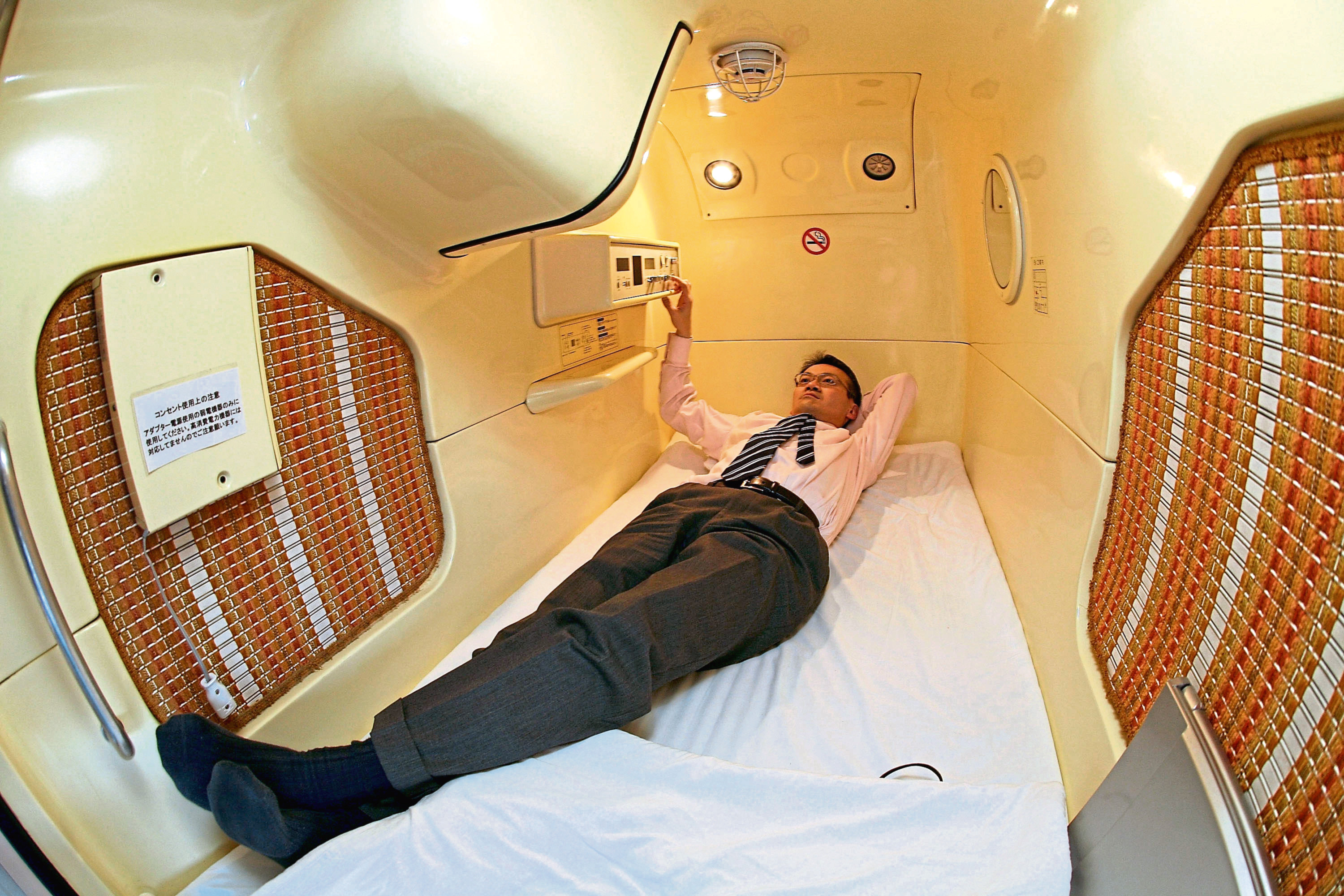
WE all have nights when we fall seriously short of the recommended eight hours of shuteye.
The following day can feel like you’re fighting your way through brain fog and struggling to concentrate, particularly by the afternoon.
It was apparently Winston Churchill who first coined the term “power nap”, saying that a daily two-hour sleep top-up gave him the ability to think more clearly.
In fact, many high-achievers through history are said to have sworn by the benefits of a daily afternoon snooze, including Albert Einstein, Leonardo da Vinci and John F Kennedy.
While it’s generally accepted that there’s no substitute for a solid good night’s sleep, for many people, that’s not always easy to achieve.
But is it better to perk yourself up by chain-drinking coffee, or would a lunchtime nap actually do you some good?
While most workplaces aren’t going to condone employees having a quick sleep at their desks, there’s a concept new to the UK that might change the future of how we use our lunch breaks, and impact our afternoon productivity – in the form of “nap pods”.
The idea originated in Japan. The first – Capsule Inn Osaka – opened in 1979 and coincided with an increase in taxi fares, so it became a more practical alternative than nipping home for a nap for late-working business people.
Now, capsule hotels are commonplace in many Japanese cities, usually just a tiny room filled with a bed.
Futuristic-looking one-person “airpods” were developed this year in Slovenia and are expected to be rolled out in European airports and train stations this autumn, while New York’s LaGuardia Airport and Helsinki Airport have similar products for tired travellers.
An early afternoon rest is, of course, a long-embedded part of life in many cultures. The siesta – two or three hours where businesses shut shop during the hottest part of the day so workers can rest – originated in Spain but also exists in Italy, as well as some Central and South American countries.
In China, “the right to rest” is even in the constitution and many workers are encouraged to take a 30-minute nap at their desks after lunch.
In the UK and Ireland, rest has always been considered a night-time activity, but there are many factors that might increase our need for more daytime resting.
According to the TUC, one in eight people now do shift work, often with frequently changing shift patterns.
Technology now means we check work emails at home so never really switch off, and the traditional nine-to-five feels like something that belongs to a bygone era, with more and more people expected to work as many hours as necessary to get the job done.
So, maybe we should take a leaf out of other countries’ books and rest during the day – and there’s now a place to do it.
Pop and Rest has opened its first permanent space in East London, where you can pay per half-hour (or up to three if you need it) for a snooze.
“Sometimes people don’t prioritise sleep, it’s seen as weak in the working environment, but that’s wrong,” says Mauricio Villamizar, CEO of Pop and Rest.
“People are now starting to realise how important sleep is to your everyday and working life.”

Enjoy the convenience of having The Sunday Post delivered as a digital ePaper straight to your smartphone, tablet or computer.
Subscribe for only £5.49 a month and enjoy all the benefits of the printed paper as a digital replica.
Subscribe